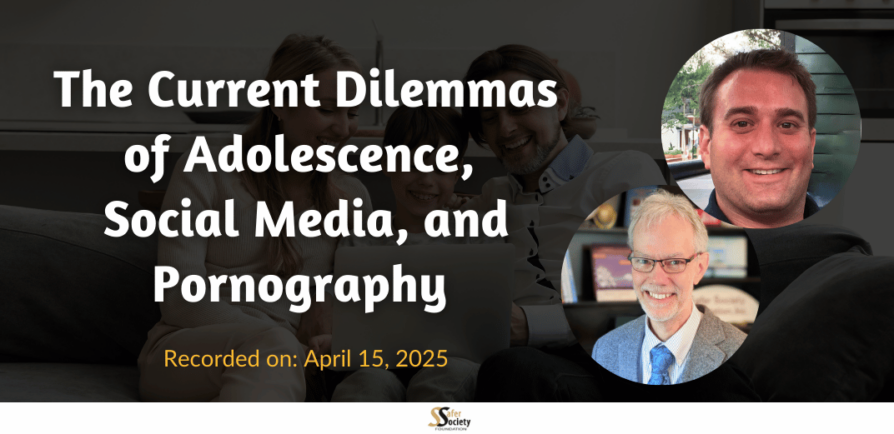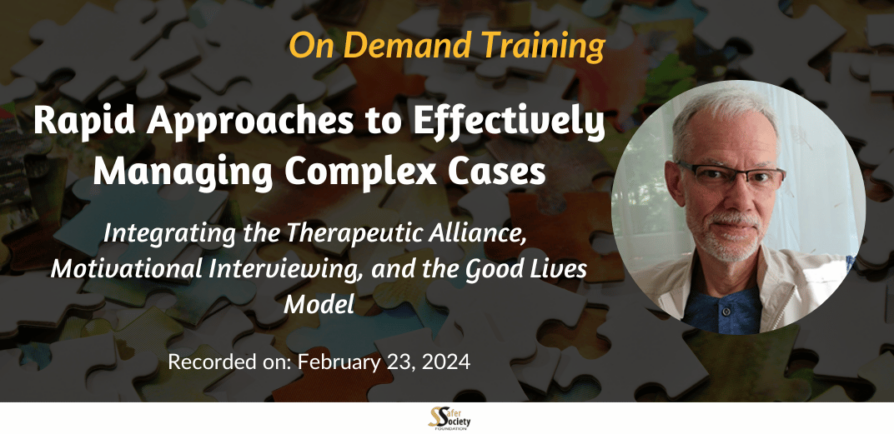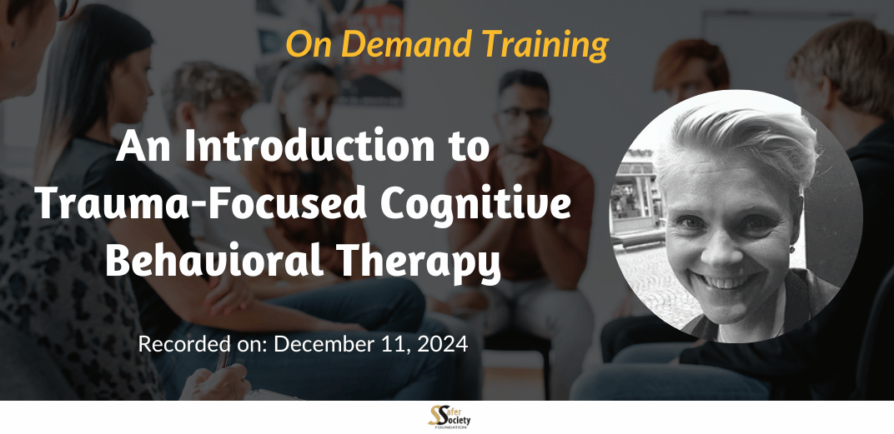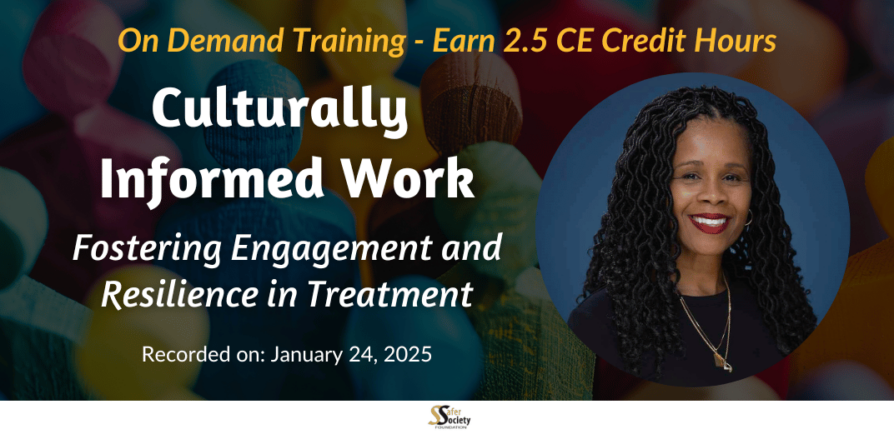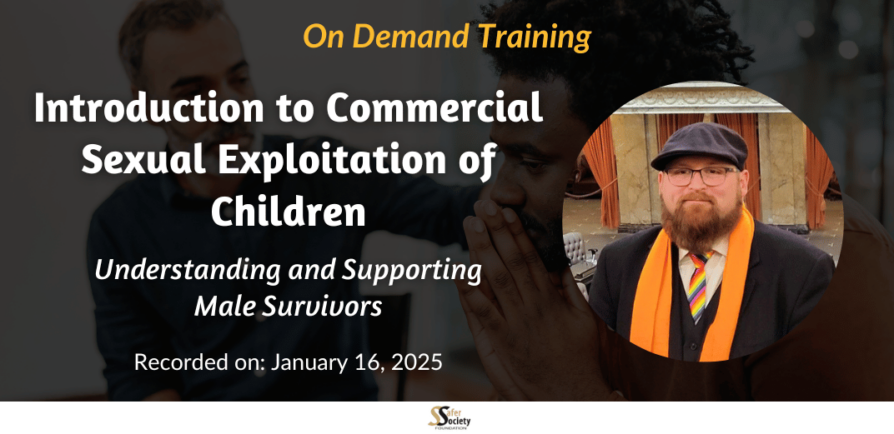Rapid Approaches to Effectively Managing Complex Cases
Treatment and supervision professionals often encounter challenges when dealing with complicated cases. To fulfill these clients’ primary treatment goals, professionals are trained to incorporate three distinct strategies into their approach. During the training, David Prescott uses fictionalized case examples to illustrate how to use the Good Lives Model (GLM), Motivational Interviewing (MI), and the therapeutical alliance to develop an understanding of a complex case.
